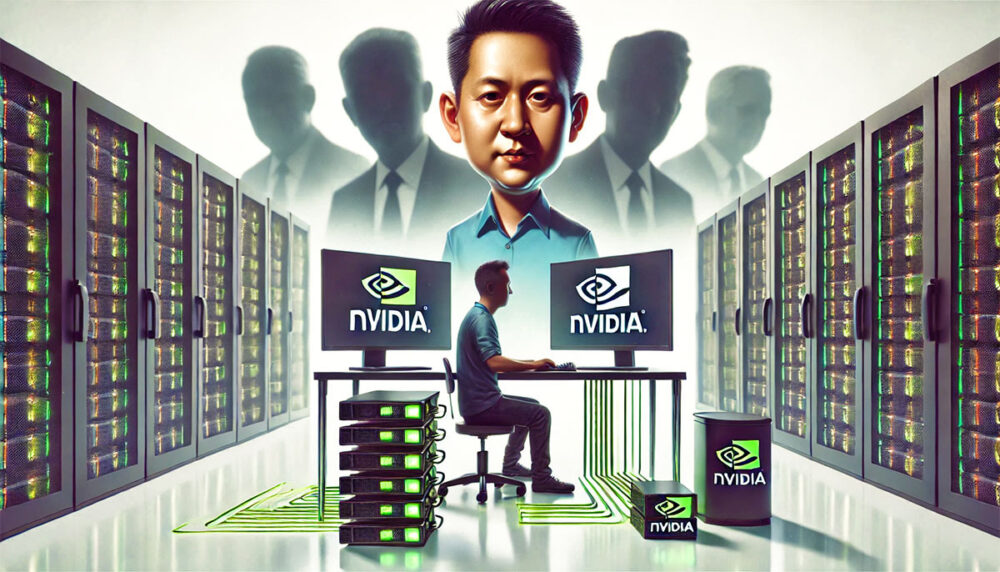China Finds Ways Around Sanctions to Harness Banned Nvidia Chips
Chinese artificial intelligence engineers have reportedly found ways to bypass U.S. export restrictions and gain access to Nvidia chips that are officially banned from being exported to China. By working through intermediaries, Chinese companies are able to utilize advanced computing power equipped with cutting-edge chips, even without physically importing these components into the country.
According to the Wall Street Journal, Chinese AI developers are leveraging cloud servers equipped with Nvidia chips located outside of China. Some operate anonymously and pay for these services using cryptocurrency. For example, former Bitcoin miner Derek O, who collaborates with Chinese firms, shared that he attracted investors from the U.S. and Dubai to purchase servers with Nvidia H100 chips. These servers were installed in a data center in Australia, from where they provide computing power to a Beijing-based company.
It’s worth noting that Nvidia has already developed several chips that comply with U.S. export control requirements, including the H20 model. However, analysts at Jeffries predict that when export restrictions are reviewed in October this year, the H20 may also be banned from sale to China. The Biden administration is considering a rule that would prohibit U.S. allies from selling China advanced equipment for chip manufacturing.
As a backup plan, Nvidia is developing a new version of its Blackwell AI platform for the Chinese market, adapted to meet U.S. export control requirements. The chip, tentatively named “B20,” is planned for release in partnership with local distributor Inspur.
Lawyers interviewed by the Wall Street Journal note that buyers, sellers, and intermediaries involved in obtaining banned Nvidia chips are not breaking any laws. Cloud service providers also claim that trade restrictions do not apply to access to U.S.-based cloud services.
Nevertheless, the U.S. Department of Commerce has proposed a new rule aimed at preventing “foreign malicious actors” from accessing U.S. cloud computing infrastructure. It remains unclear whether AI developers fall under this definition. Regardless, nothing currently prevents them from renting servers in countries like Australia.
In summary, global competition in high technology has created a complex game where the rules are constantly changing and participants seek new workarounds to achieve their goals. In this environment, it’s important to remember that true progress is only possible through open knowledge sharing and cooperation, not through restrictions and bans.



